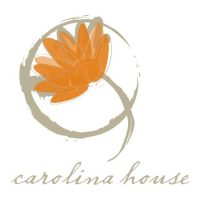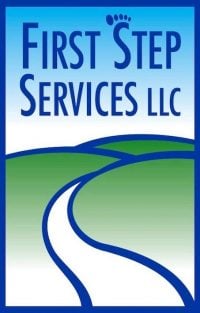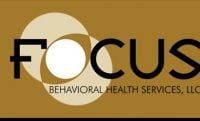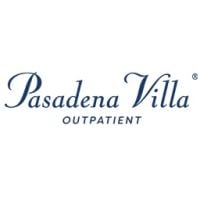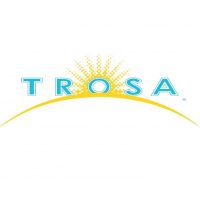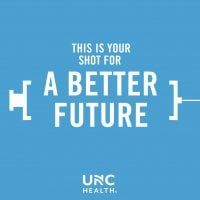About This North Carolina Facility
Carolina House Estate, situated in the serene wilderness of Durham, North Carolina, is a premier treatment center dedicated to helping adults overcome co-occurring eating disorders and addiction. Founded with a commitment to providing comprehensive, personalized care, Carolina House Estate offers a range of programs, including residential, partial hospitalization (PHP), intensive outpatient (IOP), general outpatient (OP), and aftercare.
• Gender-specific services cater to the unique needs of men and women in recovery
• Specialized programs for trauma survivors, young adults, and the LGBTQ+ community
• Intensive, trauma-informed individual, group, and family counseling utilizing evidence-based modalities like dialectical behavioral therapy (DBT)
• Complementary therapies, such as creative arts, yoga, meditation, and mindfulness, enhance the healing process
Accredited by the Commission on Accreditation of Rehabilitation Facilities (CARF), Carolina House Estate ensures the highest standards of care. Clients undergo thorough medical and mental health assessments, enabling the experienced multidisciplinary team to develop personalized treatment plans that evolve with each individual's progress.
Carolina House Estate specializes in treating a wide range of addictions and mental health concerns, including substance abuse, eating disorders, trauma, and co-occurring disorders. Their holistic approach incorporates 12-step principles, life skills training, and relapse prevention strategies to foster lasting recovery.
With a variety of treatment options, from residential care in a welcoming, home-like setting to flexible outpatient programs, Carolina House Estate provides the level of support each client needs. They accept most major insurance plans and offer assistance in verifying coverage, ensuring access to quality care for those seeking a path to wellness.
Genders
Ages
Modality
Additional
Accreditations

CARF
The Commission on Accreditation of Rehabilitation Facilities (CARF) is a non-profit organization that specifically accredits rehab organizations. Founded in 1966, CARF's, mission is to help service providers like rehab facilities maintain high standards of care.
Conditions and Issues Treated
People with dual diagnosis have coexisting addiction and a mental disorder. 9.2 million US adults had a co-occurring disorder in 2018, so not just limited to North Carolina residents. Best treatment combines medication, psychotherapy (talk therapy), support group, and inpatient rehabilitation. Sometimes, complementary therapies – yoga, massage, and acupuncture – may also be used.
Levels of Care Offered at Carolina House Estate
This center offers a variety of custom treatment tailored to individual recovery. Currently available are Aftercare Support, Dual-Diagnosis, Inpatient, Intensive Outpatient, Outpatient, Partial-Hospitalization, with additional therapies available as listed below.
Inpatient rehab means living at the Durham, NC facility while all aspects of an addiction or co-occurring disorder get addressed. This helps limit the distractions and increase the focus on recovery. Typical inpatient rehab stays are approximately one month long.
Carolina House Estate offers an Intensive Outpatient Program is for those who need intensive care but prefer to spend the majority of their time in the comfort of their own home. The rehabilitation services differ in length and intensity. They are customized to meet the needs of the patient.
Outpatient treatment plans cover diagnosis, detoxification, management, and counseling. They are a popular option for those who have graduated from inpatient facilities. Services in North Carolina include medication-assisted treatment (MAT) and individual and group therapy.
A partial hospitalization program (PHP) is a short-term form of intensive rehab, usually for those with acute symptoms that are hard to manage but don’t require 24-hour care. PHPs have structured programming (i.e. individual and/or group therapy), and usually meet 3-5 days a week for around 6 hours (i.e. 9am-3m). Some PHPs are residential (patients sleep on site) and some are not, so patients sleep at home. PHPs can last from 1-6 months, and some offer transportation and meals.
After treatment, addiction treatment can be frightening for newly sober people. Aftercare support provided by Carolina House Estate is designed to give resources and help on a continued basis. It can involve finding housing in and around North Carolina, setting up 12-step meeting groups, continued medical monitoring, and counseling.
Therapies & Programs
Family therapy is a set of therapeutic approaches that assumes that the entire family is a system. It utilizes the strengths and resources of the family to help the patient refrain from resorting to substance abuse. The impact of substance abuse is not just on the patient but on the entire family. Family therapy ensures that the patient gets adequate support from the family members after the treatment making the recovery process sustainable
- Family therapy guides all the members of the family to help the patient.
- It helps to repair relationships and improve communication between family members.
- It helps to keep the patient engaged and motivated throughout the treatment.
Group therapy is an important tool in recovery. Finding a peer group in Durham, NC and others who relate to your situation is a fundamental tool for recovery at Carolina House Estate. Addiction tends to lead to isolation and feelings of uniqueness. The accountability and friendship that is found in group therapy can be more effective than any single other treatment approach. This is generally introduced early in recovery and is recommended as a lifetime treatment habit.
Trauma therapy is a way of addressing trauma while in a safe situation in order to heal. This may involve Carolina House Estate managing individual or group counseling or both. Other forms of therapy have been proven to assist in healing past traumas.
A type of cognitive-behavioral therapy is Dialectical Behavioral Therapy. It is intended for those who are vulnerable to self-harm and suicidal thoughts. Carolina House Estate aims to help patients understand the connection between their feelings, emotions, and behaviors and provide them with the tools to make a difference in Durham, NC. For those whose addictions and habits originate from severe mental health problems, it is beneficial.
Negative feelings are common in substance abuse disorders. If not recognized, they can cause co-occurring disorders. CBT involves strategies that help to change the thinking and behavioral pattern. It can be administered as a monotherapy as well as a part of combination therapy.
Rehabilitation is not just limited to bringing an individual out of addiction and achieving sobriety. It is considered complete only when an individual starts leading a normal and balanced life. Life skill therapy focuses on the various skills that help an individual to lead a normal life. Patients often do not take care of themselves, struggle professionally, and withdraw from social interaction due to addiction’s physical and emotional disturbances.
Life skills therapy helps people in North Carolina improve various personal, professional, and social skills such as cooking healthy meals, maintaining proper hygiene, budgeting, decision-making, time management, regulation of emotions, and effectively resolving interpersonal conflicts.
Nutrition therapy, also called medical nutrition therapy (MNT), addresses the unique needs of the recovering person’s diet. Due to addiction’s devastating toll on a person’s physical health, healthy eating must be addressed as soon as therapy starts. A good diet helps boosts a recovering person’s ability to fully participate in Carolina House Estate therapy.
Nicotine replacement therapy (NRT) is a treatment that helps people to quit smoking. In nicotine replacement therapy, a controlled amount of nicotine is provided in the form of gums, patches, or sprays. They do not contain the harmful chemicals usually found in tobacco products. NRT reduces the withdrawal symptoms by giving nicotine in low doses. However, NRT provides relief only from the physical withdrawal symptoms. The emotional and psychological aspects of quitting needs to be treated separately. While NRT is safe for most adults, teens and pregnant women should not undergo NRT. Research shows that the use of NRT doubles the chances of quitting smoking.
Patient Experience
Creative Arts
Creative arts therapy, or expressive therapy, is beneficial to those battling addiction. It can include writing, music, drama, art and other forms of self-expression. It improves the patient’s emotional state and allows them to focus on something other than addiction. It allows Carolina House Estate to examine how their feelings and emotions play out through the creative process.
Experiential Therapy at Carolina House Estate
Experiential therapy works by using tools and activities to recreate past experiences. Role-playing, arts and crafts, music, animal care, rock climbing, etc. are some of the activities used in this therapy. It is different from medication and talk therapy and suits those who have difficulty expressing themselves.
Fitness Therapy
Treating substance addiction requires different types of therapies carried out simultaneously. One of the most encouraging and exciting treatment methods offered by Carolina House Estate in Durham, North Carolina is fitness therapy. In fitness therapy, patients inject movements into regular counseling sessions. It has physical, mental, and emotional benefits, including an increase in strength and flexibility. It can also help enhance cognitive functions of the brain and improve attention span.Payment Options Accepted
For specific insurance or payment methods please contact us.
Is your insurance accepted?
Ask an expert, call (888) 674-0062
Additional Details
Specifics, location, and helpful extra information.
Durham, North Carolina 27713 Phone Number(919) 759-6077 Meta DetailsUpdated April 15, 2024
Staff Verified
Patient Reviews
There are no reviews yet. Be the first one to write one.
Durham, North Carolina Addiction Information
North Carolina ranks 29th in the nation for overall substance abuse. Many of the drugs abused in the state are illicit, and many of these are opioids. Prescription opioids are readily available due to the high rates of medical workers prescribing them. The number of prescriptions has increased tenfold since the 1980's. Opioid overdoses are the most common type of death in North Carolina.
Over 8% of the population in Durham abuses drugs, and this number continues to rise. Prescription opioids, heroin, and cocaine are the most commonly abused drugs in the city. Marijuana is also a problem, with many people using it as their first drug. About 26% of HIV/AIDS cases are attributed to injection drug use. Local officials have started to offer various programs to help those affected by addiction.
Treatment in Nearby Cities
- Hendersonville, NC (200.1 mi.)
- Horse Shoe, NC (205.1 mi.)
- West Jefferson, NC (146.8 mi.)
- Shannon, ( mi.)
- Rockwell, NC (83.6 mi.)
Centers near Carolina House Estate
The facility name, logo and brand are the property and registered trademarks of Carolina House Estate, and are being used for identification and informational purposes only. Use of these names, logos and brands shall not imply endorsement. RehabNow.org is not affiliated with or sponsored by Carolina House Estate.


